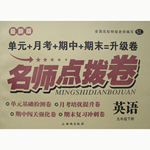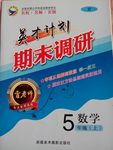题目内容
To be frank, I’d rather you ____in the case.
| A.will not be involved | B.not involved |
| C.have not been involved | D.were not involved |
D
解析试题分析:考查虚拟语气:would rather 之后的从句中要用虚拟语气;用一般过去时表示与现在或将来事实相反的虚拟假设。句意:说实话,我宁愿你不要卷入那件事中。答案:D
考点:考查虚拟语气
点评:情态动词用于推测和虚拟语气连用一直以来都是高考的重点,表示推测的时候对现在情况的推测以及对过去情况的推测要分开。这题would rather 之后的从句中要用虚拟语气;用一般过去时表示与现在或将来事实相反的虚拟假设。

 名师点拨卷系列答案
名师点拨卷系列答案 英才计划期末调研系列答案
英才计划期末调研系列答案 “Last week,” Dr. P said “I was invited to a doctors’ meeting at the R. Hospital. In one of the rooms a patient, an old man, got up from his bed and moved slowly towards me. I could see that he hadn’t long to live, but he came up to me and placed his right foot close to mine on the floor.”
“Frank!” I cried with surprise. He couldn’t answer as I knew, but he tried to smile, all the time keeping his foot close to mine.
My thoughts raced back more than thirty years—to the dark days of 1941, when I was a student in London. The scene was an air-raid shelter (防空洞), in which I and about a hundred other people slept every night. Among them were Mrs. West and her son Frank, who lived nearby. Sharing wartime problems, we got to know each other very well. Frank interested me because he was not normal (正常的). He had never been normal, ever since he was born. His mother told me he was 37 then, but he had less of a mind than a baby has. Mrs. West, then about 75, was a strong, able woman, as she had to be of course, because Frank depended on her completely. He needed all the attention of a baby.
One night a policeman came into our shelter and told Mrs. West that her house had been all destroyed. That wasn’t quite true, because the West went on living there for quite some time. But they certainly lost nearly everything they owned.
When that kind of thing happened, the rest of us helped the unlucky ones. So before we separated (分别) that morning, I stood beside Frank and measured my right foot against his.
They were about the same size. That night, then, I took a spare pair of shoes to the shelter for Frank. As soon as he saw me, he came running—and placed his right foot against mine. After that, he always greeted (问候) me in the same way.
【小题1】How did Dr P know that the patient was Frank?
| A.He was told that Frank was in the hospital. |
| B.He was invited to study Frank’s illness. |
| C.Frank greeted him in a special way. |
| D.Frank’s name was written on the door. |
| A.At the R Hospital about ten days before. |
| B.In an air-raid shelter during the war. |
| C.In Mrs. West’s house in 1941. |
| D.In London after the West’s’ house was destroyed. |
| A.those who suffered from illness. |
| B.those who were killed during the war |
| C.those who slept in the air-raid shelter. |
| D.those whose homes were destroyed in air-raids |
| A.to find out if Frank could put on his shoes |
| B.to be friendly towards Frank |
| C.to see if Frank’s feet were normal |
| D.to teach Frank to greet people in a special way |
| A.She was over 75. |
| B.She needed all the attention of a baby. |
| C.She had to give care and thought to her son as to a baby. |
| D.She lost nearly everything in the war. |
Everyone needs recognition(赏识) for his achievements,but few people make the need known quite as clearly as the little boy who said to his father,“Let’s play darts(飞镖).I’ll throw and you should say ‘Wonderful!’”
Fran Tarkenton,former Minnesota Vikings quarterback,once called a play that required him to block onrushing tacklers.
FEL quarterbacks almost never block.They’re usually vastly outweighed by defenders,so blocking exposes them to the risk of severe injury.
But the team was behind,and a surprising play was needed.Tarkenton went into block,and the runner scored a touchdown.The Vikings won the game.
Watching the game films with the team the next day,Tarkenton expected a big pat on the back for what he’d done. It never came.
After the meeting,Tarkenton approached coach Bud Grant and asked,“You saw my block,didn’t you,Coach?How come you didn’t say anything about it?”
Grant replied,“Sure,I saw the block.It was great,but you’re always working hard out there,Fran.I figured I didn’t have to tell you.”
“Well,”Tarkenton replied,“if you ever want me to block again,you do!”
1.What does the author intend to tell us in the passage?
|
A.Praise can have people take risky actions. |
|
B.Encouragement can make people achieve greater progress. |
|
C.No recognition,no progress. |
|
D.People will be discouraged without praise. |
2.The author gave the little boy as an example in order to .
|
A.show the importance of encouragement |
|
B.show father’s deep love to the son |
|
C.show the boy was complete understanding of his father |
|
D.prove the boy was cleverer than the coach |
3.Which of the following can describe the Fran Tarkenton’s action of blocking onrushing tacklers?
|
A.Quick,brave,exciting. |
B.Brave,risky,successful. |
|
C.Brave,successful,kind. |
D.Fast,clever,strong. |
4.What did Fran Tarkenton expect while watching the game films?
|
A.Recognition. |
B.Pride. |
C.Cheers. |
D.Reward. |
5.It can be inferred from the passage that .
|
A.Fran Tarkenton was angry with the coach |
|
B.the coach learned a lesson from Fran Tarkenton |
|
C.Fran Tarkenton might not take a risk in blocking again |
|
D.the coach will highly praise Fran Tarkenton next time he blocks |